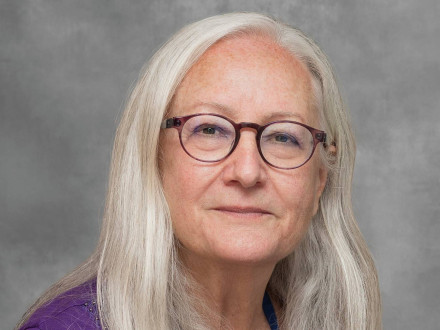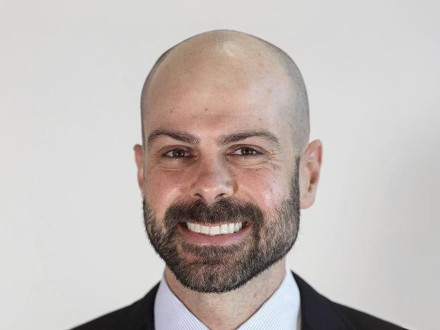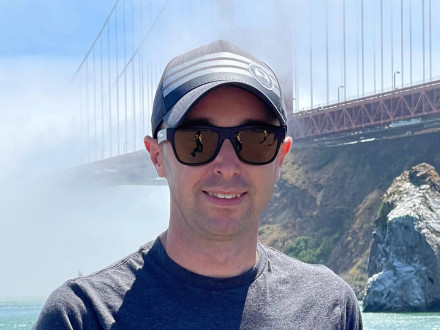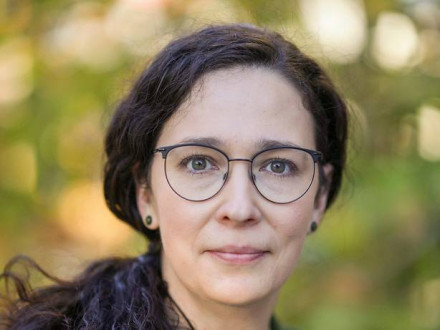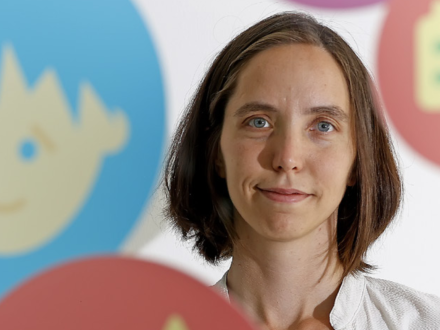Erika Rubešová Erika Rubešová is a clinical professor in paediatric radiology and fetal imaging. She earned her medical degree and specialty from the Université Libre de Bruxelles. After completing a postdoctoral fellowship at Stanford during her residency, she returned to Stanford as faculty.
With dual appointments in Radiology and Obstetrics & Gynecology, Dr. Rubešová is recognized for her expertise in the diagnostic imaging of children and fetuses. Her main clinical and research focus is in pediatric ultrasound and fetal MRI. Among other research interests, she is an advocate for the use of contrast-enhanced ultrasound (CEUS), promoting its benefits in improving the diagnosis of various pathologies in children. Her work bridges clinical excellence with academic leadership, contributing to advancements in maternal-fetal and paediatric radiology.
I found a paper of yours that focuses on stress injuries and physiological adaptations in the fingers of rock climbers. What would you recommend they avoid? And, on the contrary, what would you recommend them to do?
In climbing, like in many sports, regular and progressive training is essential. It is important to build the muscles that may protect the joints. A good warm up is also important to prevent any acute injury. Once the injury happens the climber needs to take the recommended time to heal, especially if the growth plate is affected, as an injury to the growth plate of the bone may lead to growth arrest and permanent deformity.
You are a strong advocate of contrast agents in ultrasound. What do you see as the biggest benefits and challenges of this approach? To what extent is this a common practice in the US, Europe?
Contrast enhanced ultrasound (CEUS) provides additional information to regular ultrasound about perfusion of organs. In the USA, it is FDA approved and commonly used in children to characterise various types of liver masses by their enhancement pattern. We can obtain the similar information from MRI, but CEUS is cheaper, can be performed at the bedside and doesn't require anesthesia in small children. Ultrasound contrast is safe and excreted by the lungs and liver; therefore, it can be used in children with poor renal function. The contrast can be also used intravesical to detect vesicoureteral reflux. It is very sensitive for the detection of reflux and doesn't require exposure to ionising radiation, which should be avoided in children whenever possible.
The limitations are the need of intravenous access, the approval by regulatory institutions and the additional cost of the contrast agent.
It is used in the US and Europe, especially in the larger academic centers, but I believe that with time, we will find a larger range of applications and it will be used more widely.
Your family has Czech roots, you grew up in Belgium and live in the US. In what language do you dream? In which one do you swear? In which one do you like to make jokes? In which one do you prefer to read?
I was born in Prague and grew up there until I was 9-year-old. I lived 25 years in Brussels and 20 years in California. Although, I attended school in Prague only up to the 3rd grade, I was immersed in the Czech language and culture even in Belgium. Czech is definitely my mother tongue, and I speak Czech even to my children, which are also fluent in Czech. The area where I live now is very international and many of my friends are European. Although there is a saying that one always counts, swears and prays in their mother tongue, it is not totally true for me.
I dream in all the three languages, depending on the situation. If in my dreams I am with my family, it will be in Czech, if it is work related, it will be in English. I am pretty fluent in swearing in all three languages. The sense of humor is complicated; I think I could write an entire book about that. There is a universal sense of humor, but overall, I joke and laugh the most with my European friends whether it is in Czech, French or English. Reading literature is the easiest for me in French and Czech but I read all scientific publications, of course, in English.
What's the first thing someone who wants to get into Stanford should do?
It depends at what stage career the person is in. For young doctors, I would recommend to get involved with some research and to have some publications. It is then easier to find a lab that would accept them for a postdoctoral fellowship, which is the first step to work and study at least for some time at Stanford.
Související
Motol Day of Imaging in Paediatric Radiology / Masterclass
29 May 2025
9:00—17:00
Great Lecture Hall, Motol University Hospital
For Me, Teaching and Learning Is a Two Way Street, Says Stanford Professor Beverly Newman
At the upcoming Motol Day of Imaging in Paediatric Radiology / Masterclass, she will deliver a lecture titled Late Presentation, Complications, and Mimicry of Congenital Pulmonary Anomalies. A conversation.
Multimodal Information is the Key to Improving the Automated Analysis of the Epileptic Brain, Says Dr Bruno Passebon Soares
A conversation with a Stanford radiologist and speaker at the Motol Day of Imaging in Paediatric Radiology, scheduled for 29 May 2025.
I Love the Collaborative Environment of Children’s Hospitals, Says Dr Jesse Kerr Sandberg
A conversation with a Stanford radiologist and speaker at the Motol Day of Imaging in Paediatric Radiology, scheduled for 29 May 2025.
If You Don’t Like Your Place/Specialty/Life, Make a Change, Don’t Complain
A conversation with a Stanford radiologist and one of the speakers at the Motol Day of Imaging in Paediatric Radiology, scheduled for 29 May 2025.
Doctors Care About the Safety of the Child Patient, but Parents Should Not Feel Blamed When Communicating With Them
A conversation with Dr Eliška Popelová, a speaker at the Motol Day of Imaging in Pediatric Radiology (29 May 2025).


